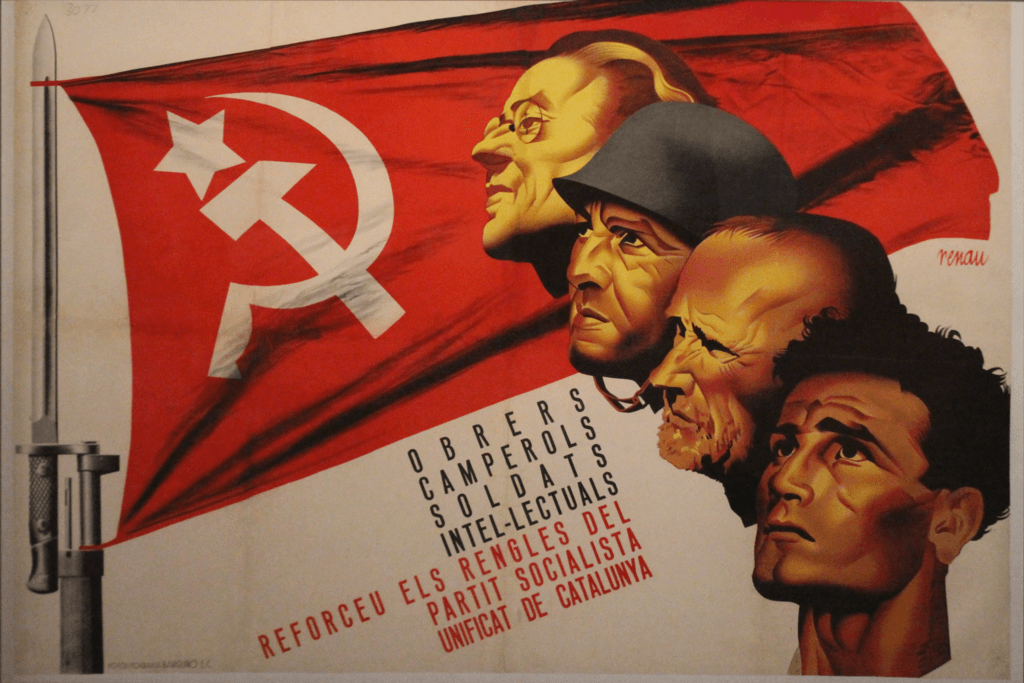Why are so many New York capitalists on the verge of electing a socialist for mayor? Conversely, why is the working class so hostile to the leftists who want to give them the means of production?
Why do Democrats who inveigh against corporations and billionaires supported by so many corporations and billionaires? Why do Republicans, supposedly the party of big business, have low income folks as a major part of their base?
Different theorists try to account for these apparent contradictions.
Analysts of the popularity of the Democratic Socialist Zohran Mamdani in New York City and the stranglehold of the Left on university campuses have been invoking the theory of “elite overproduction.”
According to this view, when members of the elite class become so numerous that they cannot be absorbed by the society’s power structure–there not being enough jobs for them despite their high qualifications, so that there is a contradiction between their high status and their low incomes–they will become radical. They feel entitled to rule, and yet they are not ruling. They feel entitled to wealth, but they are struggling financially. This leads to social instability, as the elite turn against the status quo and seek to overthrow the established order so as to make it more “just”; that is, one that gives them the wealth and the power that they believe they deserve.
A big problem with this view, though, is that elite leftists are not just un- or under-employed recent college grads. Many of the titans of industry–such as the board members and corporate executives who impose DEI mandates and give millions to the Democrats–are also leftwing in their politics. Overall, Democrat voters are affluent, not financially frustrated. They are not alienated. They really do exercise their power in the culture, as we see in the fields of journalism, media, the arts, academia, technology, and just about every other sphere.
On the other side, progressives try to work out why the proletariat so often votes against its economic interests. Thus, in What’s the Matter with Kansas (2004), Thomas Frank contends that conservatives have used culture war issues such as abortion and “values” to distract blue collar workers and midwestern farmers so that they vote for Republicans against their economic and political interests.
I would say that both of these theories are reductionistic and condescending. They are also variations of the Marxist doctrine of “false consciousness.”
The fact is, the same phenomenon of the proletariat supporting the existing order instead of wanting to overthrow it and take it over plagued early Marxism. So Marxist theorists developed the idea that oppressors shape the culture so that the oppressed agree with what oppresses them. This is “false consciousness,” as opposed to the revolutionary “class consciousness” that is necessary for the revolution.
What is needed is a “vanguard,” consisting of intellectuals as well as advanced workers with class consciousness, to ignite and to lead the revolution. In doing so, they will also educate the workers and cure them of their false consciousness. They will form a “vanguard party”–which would be named the Communist Party–which would operate the “dictatorship of the proletariat” in the workers’ interests, imposing the necessary discipline and giving the necessary orders. This, of course, is how the seemingly egalitarian revolution was hardened into a totalitarian police state ruled by the well-educated bureaucrats of the nomenklatura.
So, again, the alienated elite, perhaps victims of “elite overproduction,” drove the Marxist revolution and ruled the proletariat, blinded by their false consciousness as they were, with an iron fist.
Leftists still think in these terms, even in our “post-Marxist” context, in which groups other than economic classes are thought to oppress each other. Thus, women who reject feminism are said to have “false consciousness.” So are black conservatives and Hispanic Republicans and anti-trans gays.
Again, all of this is reductionistic. Human beings are complex and multi-faceted, as is reality. There is more to the human mind, society, and life itself than just economics. Or power. Or oppressing or being oppressed.
Maybe blue collar workers believe in things like religion, morality, and patriotism. This is why they can be described as culturally conservative. To them, such things may be more important than the size of a check they might get from the government or the prospect of rising up against their employers. Maybe they think it would just be wrong to do so.
And I daresay they feel the condescension and the patronizing with which the upper class elite, radical though they think themselves to be, regards them and yearns to rule them.
And, in defense of the elite, I suspect they have drunk deeply of what they have been taught in their schools. They feel guilty about their privilege and so want to justify themselves by supporting socialism. And if that means they will work against their economic and political interests, they feel that they deserve it. But they likely also just believe in the ideology, which, in its comprehensiveness makes for an effective substitute for the religion most of them have rejected. Peer pressure is doubtless a factor, wanting to fit in with their colleagues in the faculty lounge and their friends in the country club. And a good many are just idealistic and well-intentioned.
At any rate, the conflicts are not just political. Those on both sides who reduce everything to politics–that is, to power–are missing what is most important. These are conflicts of ideas, of worldviews. Persuasion is possible. So is conversion.
Illustration: Workers, peasants, soldiers, intellectuals, reenforcing the ranks of the Unified Socialist Party of Catalonia, Poster from the Museu Nacional d’Art de Catalunya by Steve Kelem, CC BY-SA 4.0 <https://creativecommons.org/licenses/by-sa/4.0>, via Wikimedia Commons










